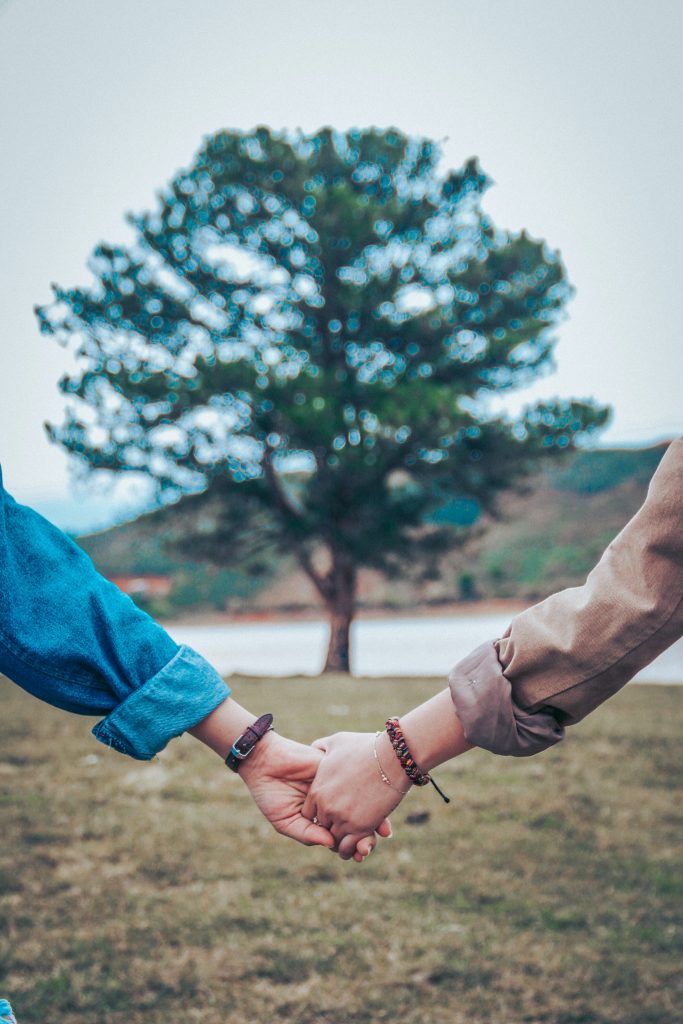Psychotherapy
Psychotherapy
Psychotherapy
What is it good for?
There are many valid reasons to start therapy. If you feel something is stopping you from achieving your goals, if you want more out of life, or if you are dealing with uncertainty – therapy could be a good place to start from. Low self-esteem, negative body image, and work-related stress can really reduce the wellbeing of a person, as do depression, anxiety, grief, and trauma. Seeking support when you need it is a sign of strength, and the first step to overcome the obstacles and challenges that life presents us with.
How to begin?
Contact me to arrange a consultation, which will last about 20 minutes. We can then briefly discuss what brings you to therapy, and what you would have liked to change or achieve. You will have the opportunity to ask me any questions and get a sense of how I work, and also about the details of the therapy, Then, you can decide if what I offer suits your needs and preferences. For inquiries and to book a consultation, get in touch.


Individual therapy
Individual therapy consists of one-to-one sessions done in a comfortable and contained environment. The sessions are usually done weekly, are focused on you and where you can have the time and space to explore your needs and wishes. Individual therapy looks slightly different for each person, but here are some of the therapeutic elements that I offer:

Self-awareness
We all have unhelpful patterns which are expressed in the way we talk, behave, think and feel. These patterns often result in behaviours that can dominate our lives without us realising it happens, or that we can change it. I offer embodied methods to help increase your self-awareness, and to explore the origins of any judgments and/or unhelpful perceptions you might carry in your body. This can lead to connecting and accepting yourself better, and changing what is needed to change.
Creativity
Being creative is a natural skill that everyone has; having access to this part is really a question of practice rather than a talent. Learning to connect to, and use the creative part in you can take some work for some, as you might need a change of attitude and learn to see yourself and your capabilities in a new light. I offer you a therapeutic process in which unlocking and developing your creativity are both aims and important parts of the journey.
Empowerment
By choosing to go to therapy you are effectively choosing to invest in YOU, to redirect your life, to heal, and to grow. Empowerment means feeling more able to stand up for yourself, or finding the strength to walk away from something that is no longer supporting your growth. It means establishing a good connection to yourself – knowing who you are, where you came from, and where you are going. I offer to help you to find the resources you need to ground and to feel empowered and better able to act in the world.

Couple’s therapy
Couples therapy involves both partners and the therapist, who acts as an unbiased and mediating professional. The sessions are attended by the three of us, preferably on a weekly basis. The aim of this process is to identify and resolve issues as they appear in the relationship. Here are some therapeutic elements that we will work with:
Clarity
Before issues can be resolved, they need to be identified and their possible sources and origins clarified. I will encourage you to understand what are the challenges that you face in your relationship, and why. Together we will explore different ways to communicate so both of you can feel listened to, and able to express your experience and wishes for the future. I will support you to take ownership over your needs, actions, and reactions so you may have a shared understanding of where you are at in your relationship, and which direction you want it to go.
Strengths & Weaknesses
As part of the therapy, it is useful to identify your strengths and weaknesses, individually and as a couple, to co-create your relationships in a way that suits you both. This could be an opportunity to look at habitual conditioning, roles, and responsibilities – and to create something new that will align better with the people you are now, leading to a grounded vision of your relationship and what you wish it to become. This creative process can help to align your expectations of the relationship and turn it into a partnership that can sustain and nourish you both.

Communication
Good communication is essential for any relationship to succeed and we will consider different styles of communication that will allow you both to feel heard and accepted. Embodied work helps to find ways to become more authentic in your interactions and able to share your experience with each other. The aim is for you to be comfortable enough to express yourself, and receive non-judgmental listening and acceptance in return. Ultimately, this attitude creates space for development and possibilities for growth, both individually as well as together as a couple.

Trauma-informed therapy
I offer an understanding of trauma and its impact and focus on change and development, combined with creative and embodied methods to explore and connect. I use a gentle approach where we follow your pace and rhythm throughout the process and as part of the relationship. You will decide what topics to explore and when is the right time for you to do so. Here are some ideas I apply in my work:
Working with symptoms
When starting the therapy it is useful to understand the triggers and symptoms, if possible, so we are able to create a supportive environment where you can feel contained. If this is not comfortable for you to discuss, we will go on to identify those slowly and carefully as the sessions progress. Either way, I offer you space to explore these symptoms and triggers and to understand their meaning. This helps to increase self-awareness, and support processes of recovery and healing to take place.
Re-writing the story
Often it can be very challenging to share stories of trauma and yet it is very important that these memories are explored – but in the right way, and when the person is ready for it. This can be done gradually and in creative ways, and I offer you the patience and the trust that it will happen when the time is right for it. Reconstructing the narrative of the experience not only helps to process it but also to transform it, leading to therapeutic progress, recovery, and healing.
Empowerment
Telling people who experienced trauma that they are, in fact, very strong to have survived, might very well be true but is not the most helpful strategy. Words cannot easily go through the metaphorical bubble created inside a person by the trauma – where they might feel weak, helpless, or guilty for what they have been through. Still, empowerment is very important for trauma work. I will encourage you to creatively explore ideas of power and empowerment (when relevant) to help you improve your confidence, ground, and embody your connection to yourself.


Get in touch
info@carolinegalon.com
Address
Girona, Cat., Spain 17005
Hours
Mon – Fri: 9am – 8pm
Saturday: 10am – 2pm